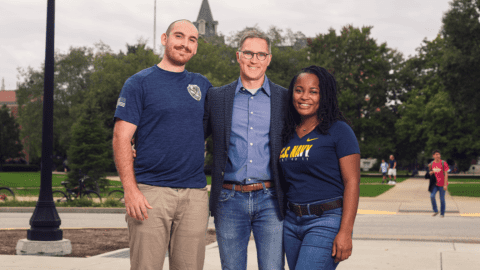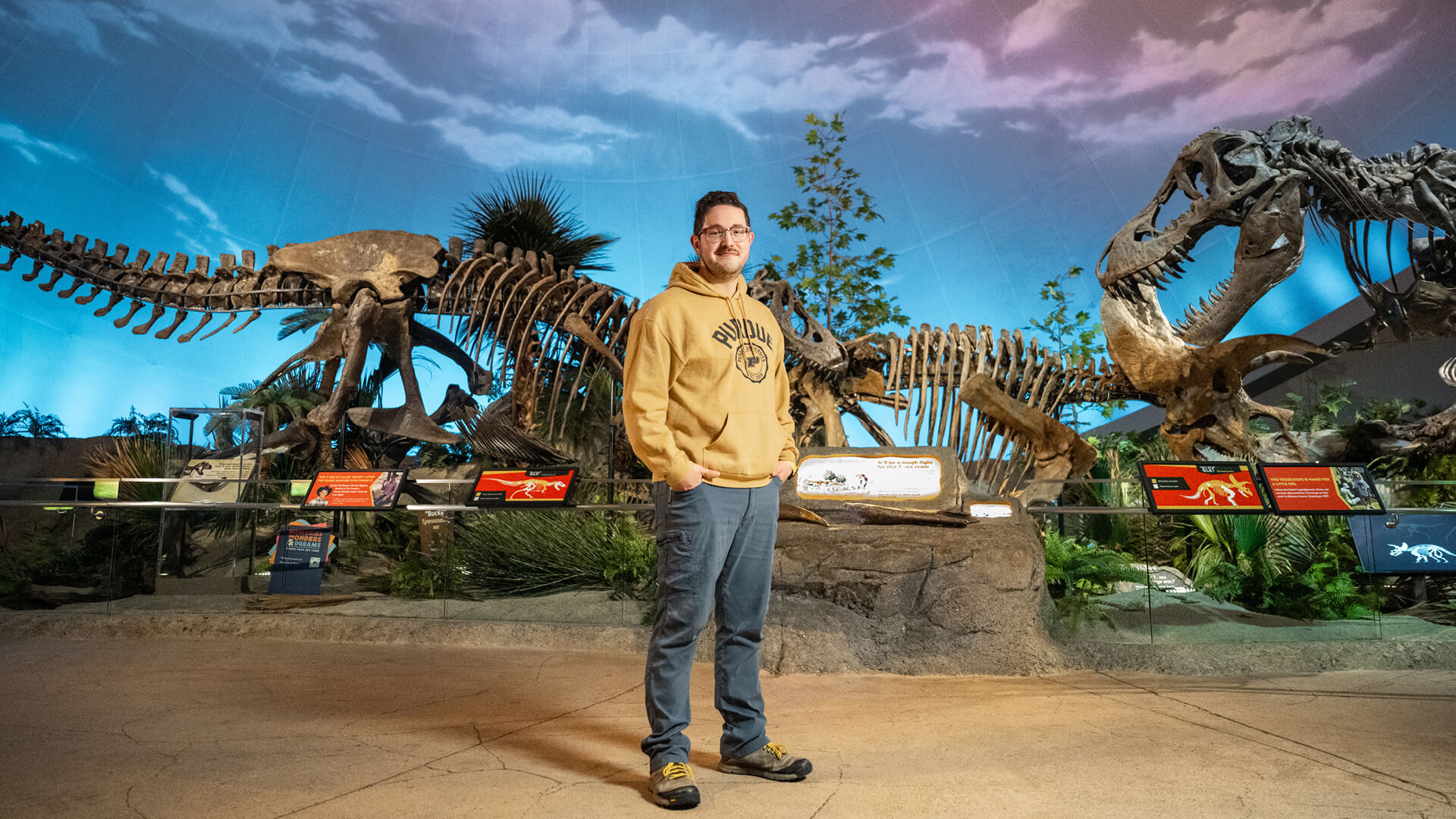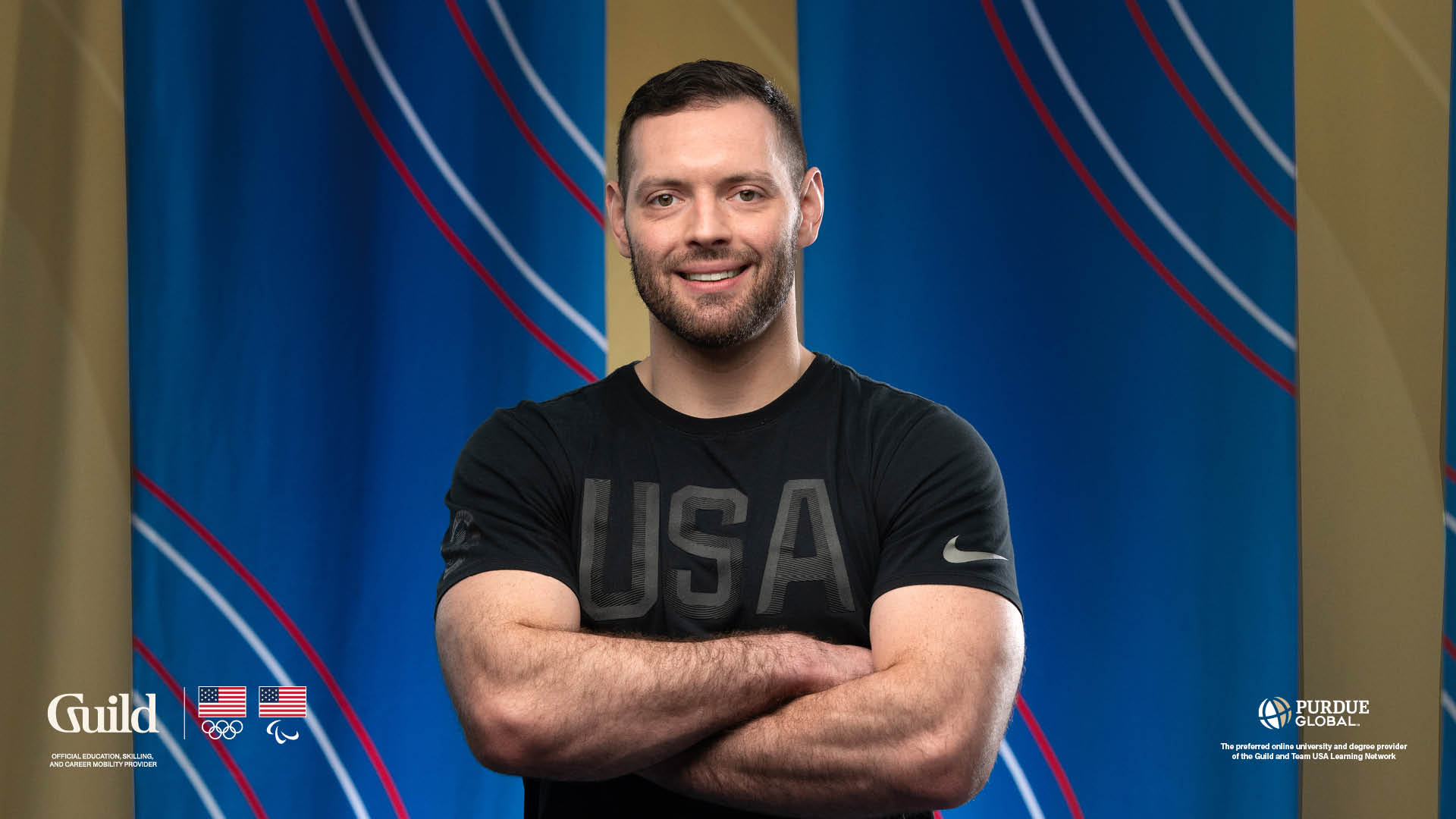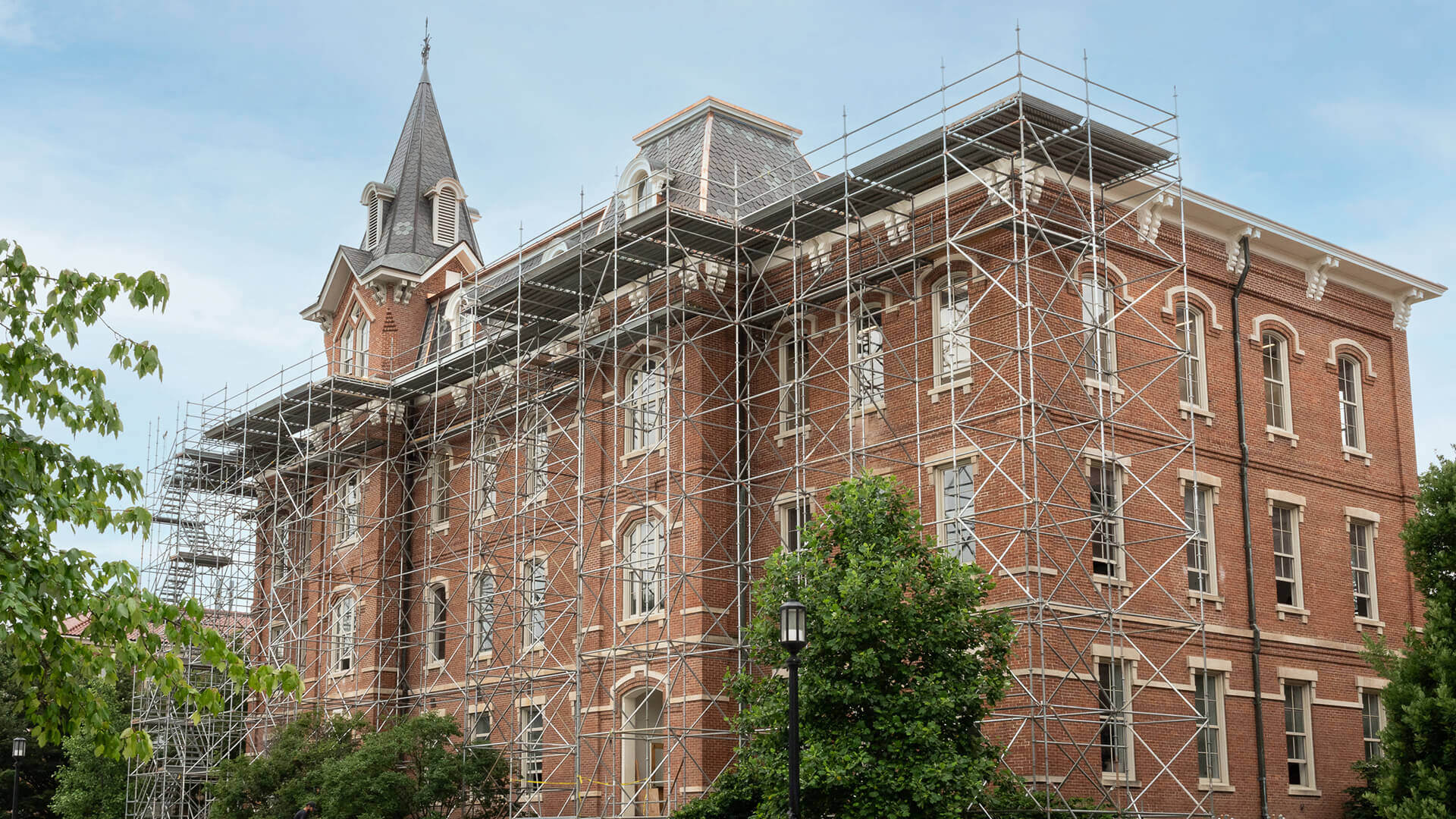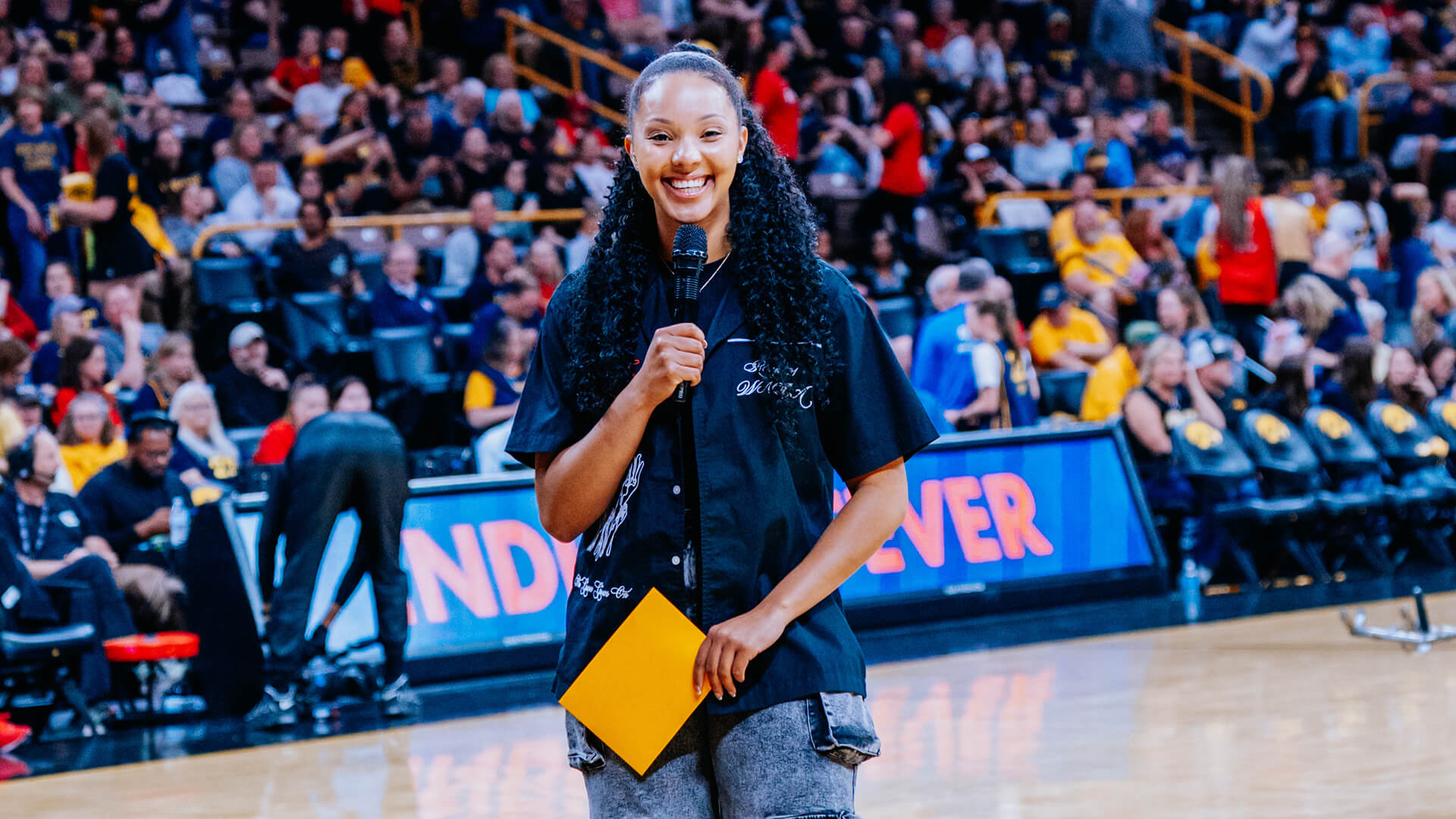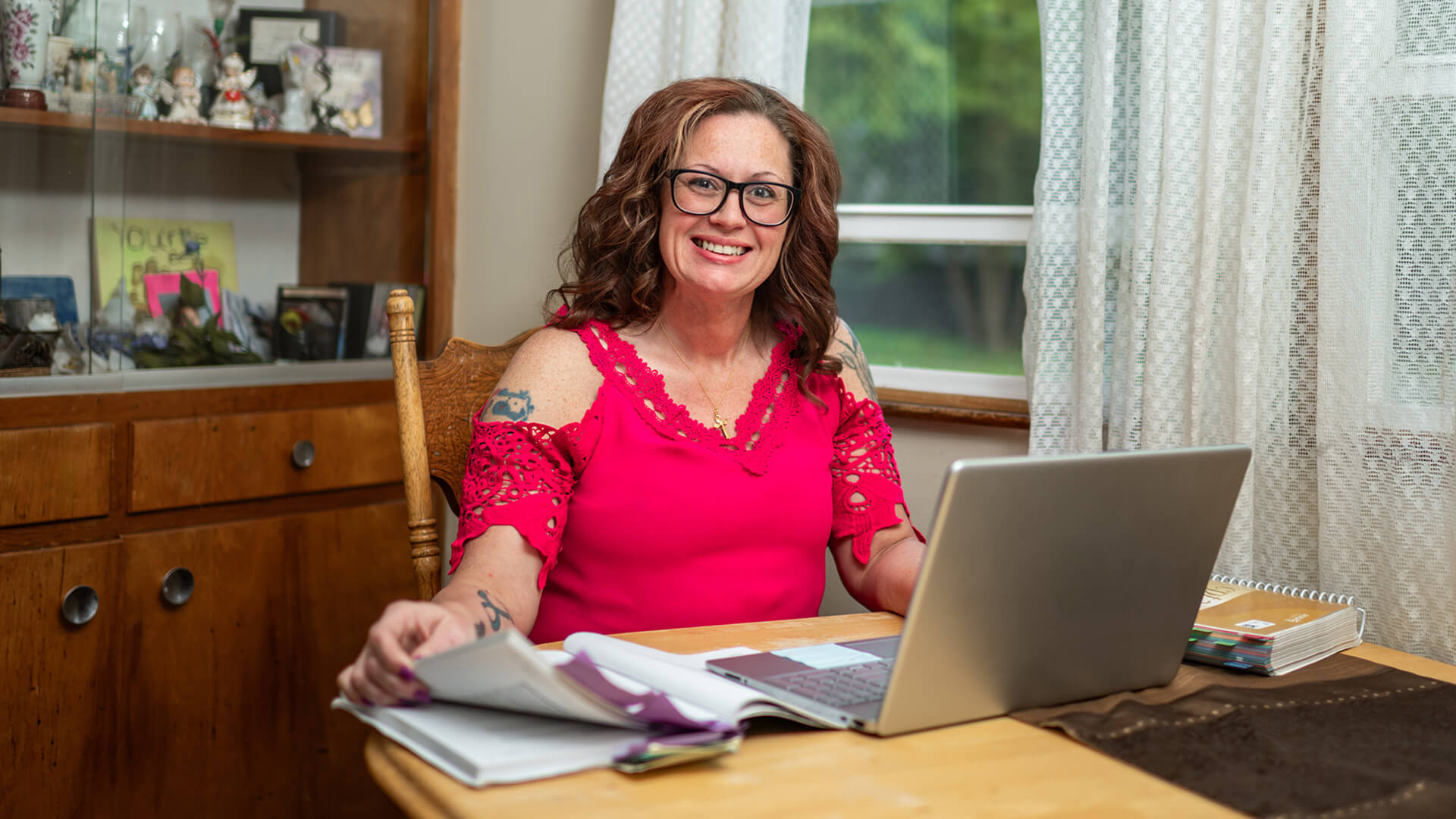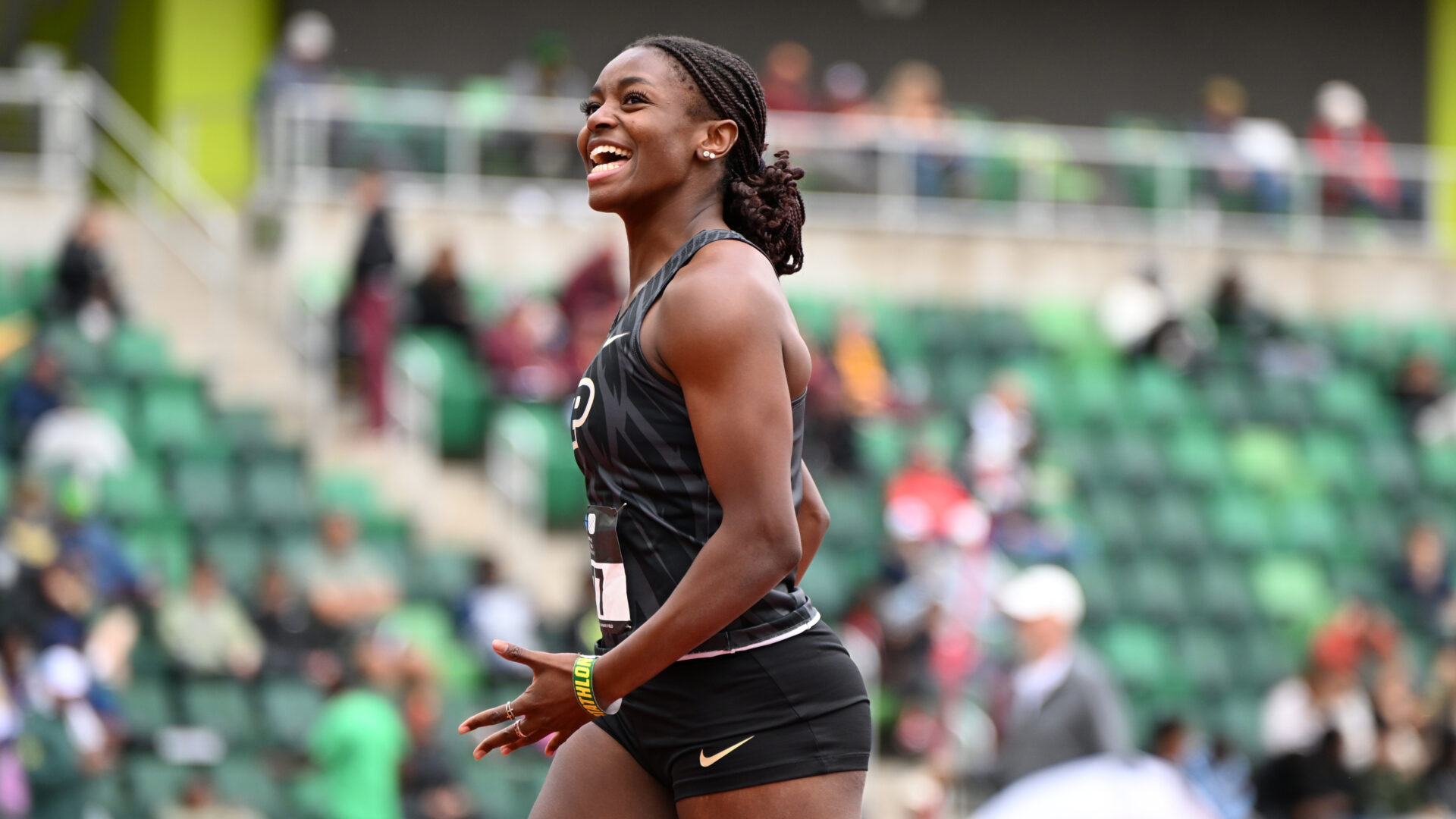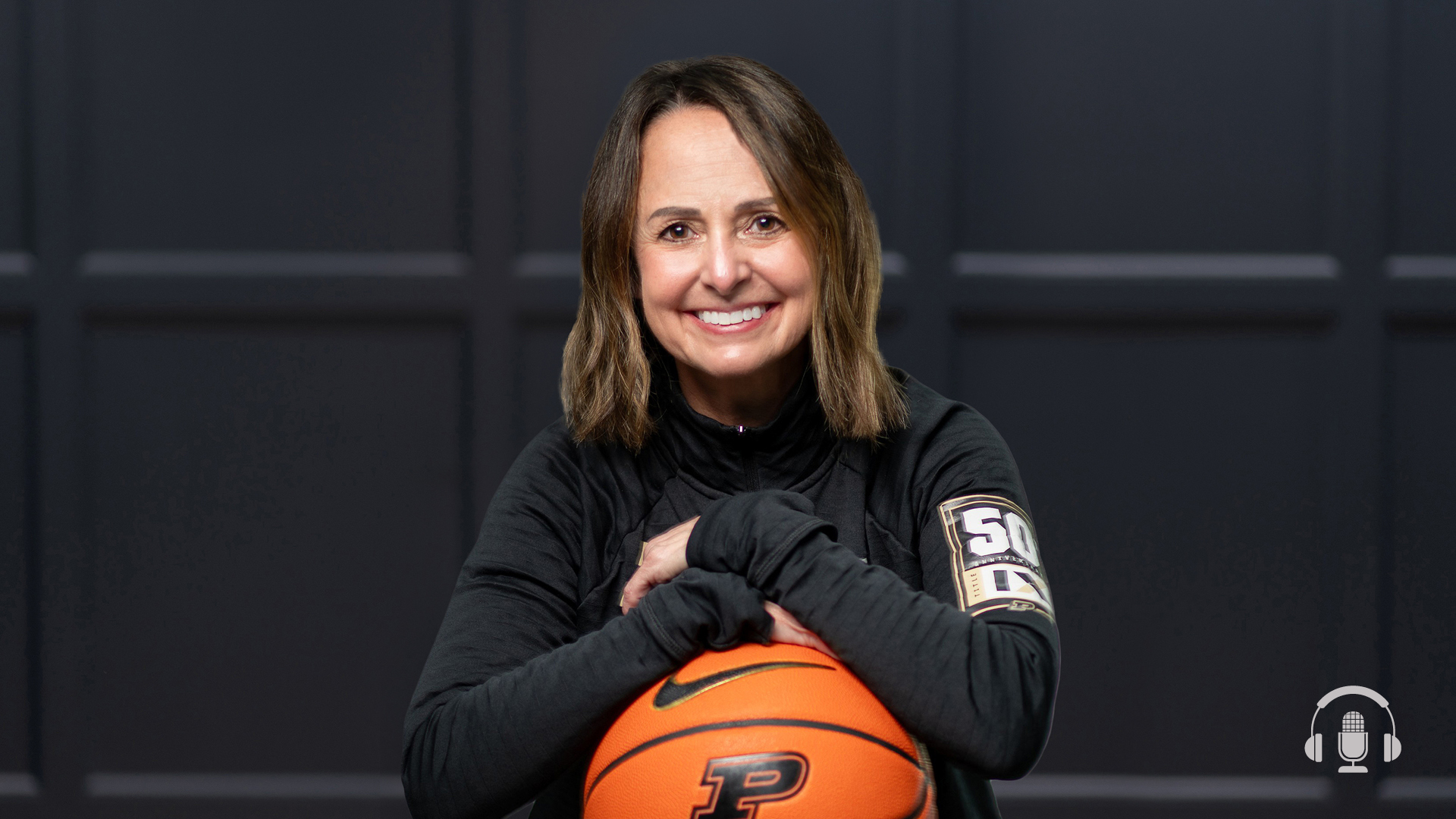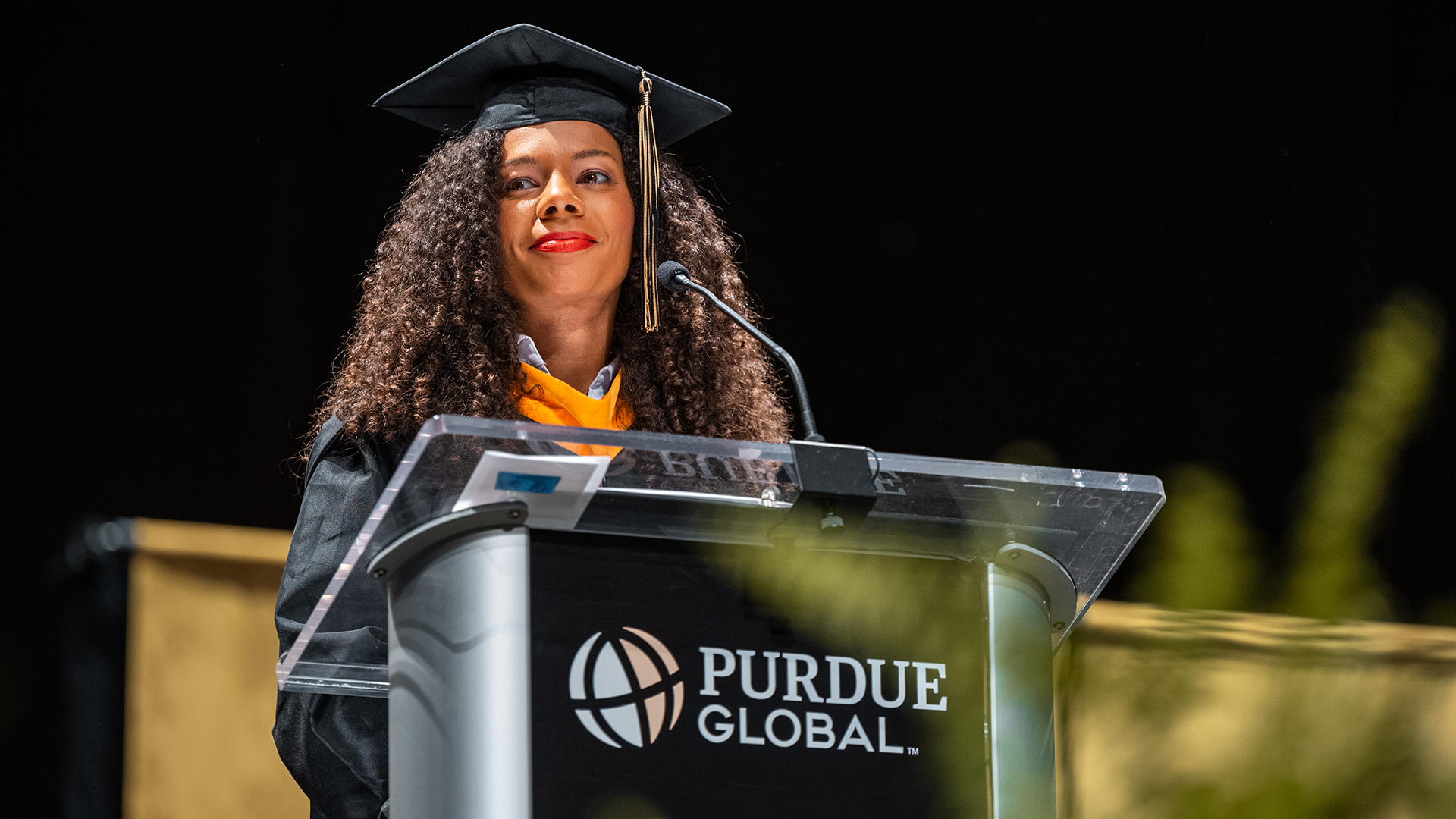Woven into the fabric of Purdue
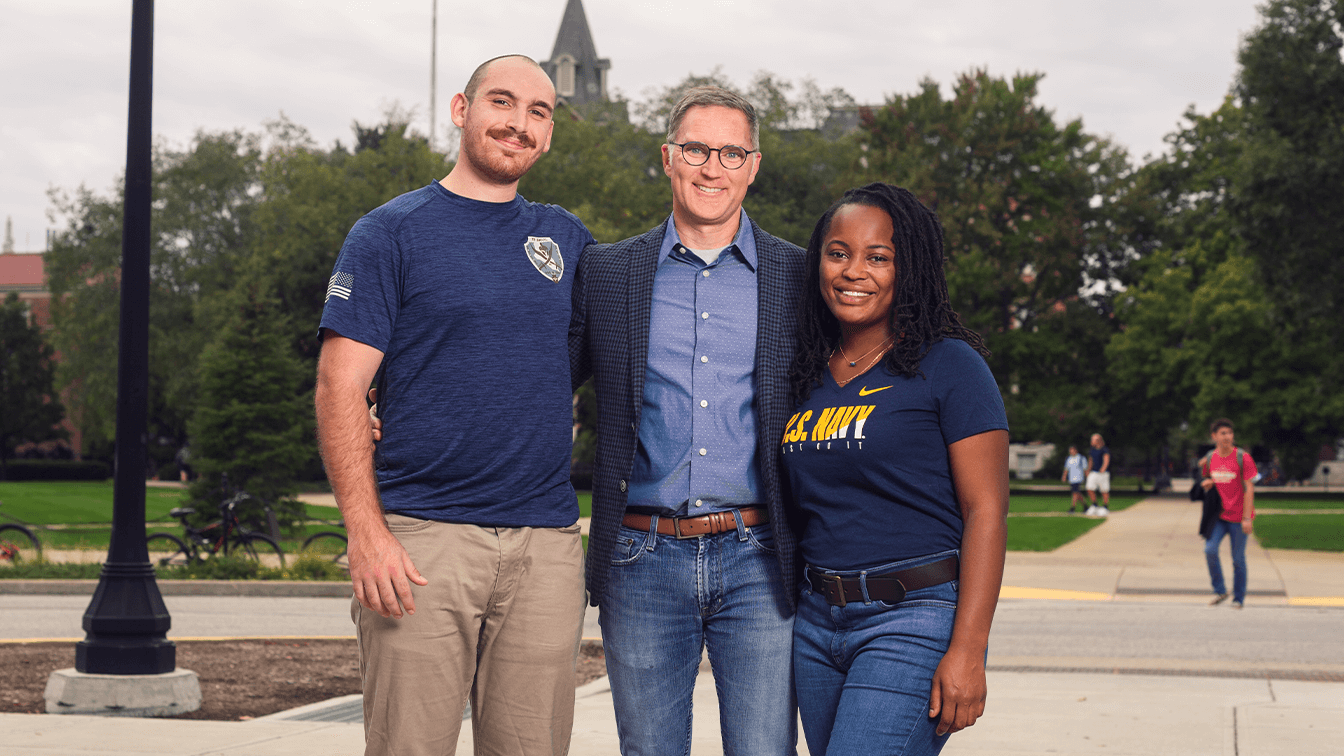
The Veterans Success Center connects students to Purdue military history and helps them maximize their education.
Most new college students start when they’re 18, looking to find themselves and their path, adjusting to adulthood. Jamie Richards, director of Purdue’s Veterans Success Center (VSC) and advisor to the Student Veteran Organization (SVO), says the people he helps usually find themselves with different strengths and different challenges from what a typical college freshman may experience.
“The average age of a veteran student is 31, and the average age of a military student is 24 or 25,” he says. “Around 80% of the people that join the military do it to gain access to education benefits. A lot of people who serve are first-generation students, and many are low-income. They join the military to improve their life after their service.”
That’s why military-connected students consider their service and their education to be profoundly, meaningfully linked. Richards, a retired Navy veteran who used his education benefits to earn his own Purdue degree, says his personal experience factors greatly into how and why he invests himself in his work.
“It’s rewarding, the fact that I’m helping people with similar backgrounds to me,” he says. “I was also a student who used the GI Bill, so I have that shared experience. I know what it means. I understand how important it is for education to be part of where you’re going. And I get that because I was a 30-year-old undergrad student starting here at Purdue back in the late ’90s. So, I get the importance of this.”
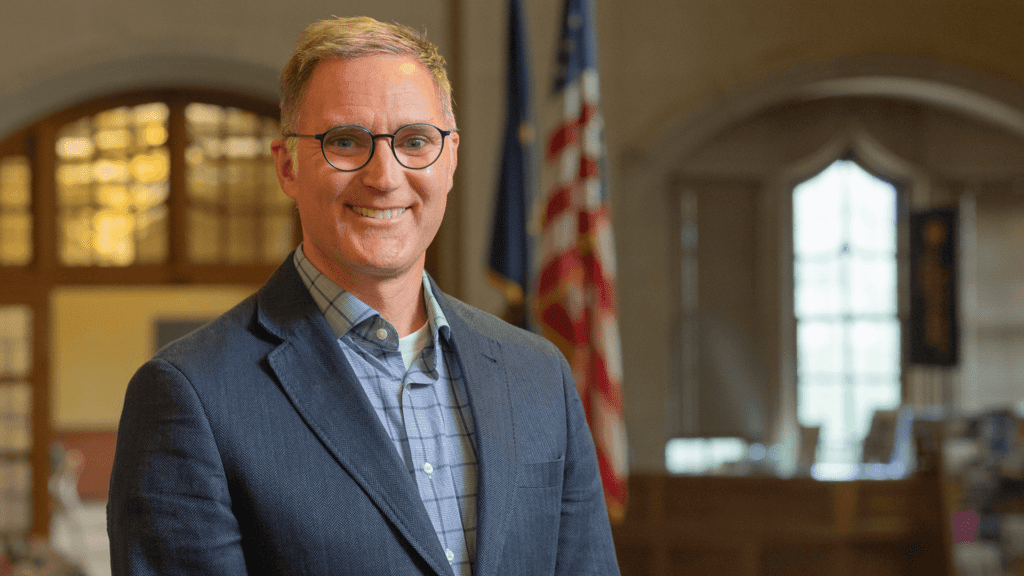
Richards says the VSC provides support in the four categories student veterans tend to need it most: education and advising regarding military-provided education benefits, connection to campus, camaraderie, and career search help. One of the programs he runs at the VSC is a separate orientation.
“We take them around campus and make them aware that there’s a lot of locations on campus named after veterans,” he says. “So, when someone who’s in their thirties steps on campus and might feel a little bit out of place, I want to show them the reality — they own the campus just as much. Their experience is woven into the fabric of Purdue.
Daniel Mayper and Jerica Drew are two of Richards’ veteran students who have both truly found a place of belonging at the VSC. Both Mayper and Drew consider their unique perspective as veterans to be a major advantage. In fact, Mayper says the soft skills he’s learned as a 15T Blackhawk helicopter repairer have made all the difference in his ability to persist.
“Mental fortitude is the greatest asset I obtained from the military; as an aerospace engineering major, life can get really stressful, so having that fortitude to persevere through each obstacle is profound,” he says.


Drew agrees and says she wouldn’t be here without the U.S. Navy.
“My military experience made college possible for me. I couldn’t afford it prior to earning my benefits and I definitely don’t think I would be performing as well as I currently am without the discipline the Navy instilled in me,” she says.
Drew notes that Purdue is a place that understands and recognizes the impact of those who serve. Becoming acquainted with the military-affiliated locations on campus was especially meaningful to her when she started at Purdue. Those buildings and memorials contribute to her sense of empowerment as a veteran student.
Purdue understands the impact of military-connected students, and the VSC offers a platform for us to thrive.
jerica drew
Social change and connection
The SVO, Richards says, is a group that predates the VSC. In fact, the VSC was born out of the concerns the SVO raised, in addition to the military leave policy, priority registration, and even red, white and blue graduation cords.
“The SVO is not only a social organization. They do community service and help change some of the policies on campus. My position and this office came about from their voice, which was to say we need more support on campus,” he says.
But Mayper points out that it was a critical support for him socially as he transitioned from service into an educational setting.
“When I first got back from my initial entry training, the sponsor from my unit was also a Purdue student, and he recommended that I check out the Student Veteran Organization,” he says. “There was this whole group of people who thought, talked and acted like me and it was really a place I felt I could belong.”
And, he adds, having that overarching support from the VSC makes all the difference.
“Besides being well-qualified, the VSC staff actually cares about students who come in. They’re more than happy to help everyone, whether the problem is big or small, benefit-related or personal,” he says.
The military student experience is definitely well-understood at the VSC, and Richards says he and his team are always working toward creating a better understanding of his community across campus, always looking to students to understand current needs and concerns.
I always start by saying, if you’ve met one person in the military, you’ve met … one person in the military. Everybody’s experiences can be vastly and uniquely different. We may not have an answer to everything, but we can help direct the traffic.
Daniel Mayper
